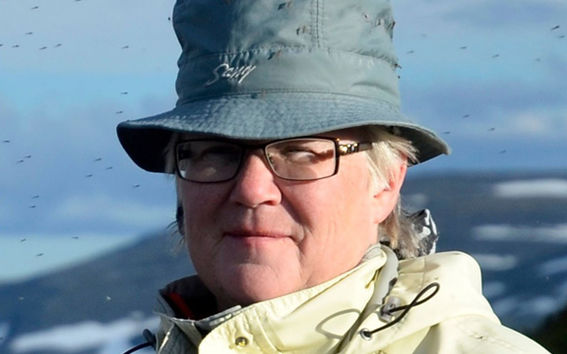Asta Pellinen-Wannberg
"It's worth investing in what interests you most. In the end, I think that's what you're best placed to do. I wasn't a top student myself, sometimes a bit lazy. I think that's a good quality, you don't burn yourself out so easily".

What have you studied and how did you choose this option?
Maths and physics were easy for me at school, and I tutored my friends in these subjects from the age of 13 until my matriculation exams. So it was natural for me to go to university to study maths, physics and chemistry. Physics phenomena have always fascinated me. Phenomena seen through the eyes of near space are the type of astronomy I study. I was also interested in architecture, but I didn't get in to study it. Fortunately, I was able to pursue this interest when my husband and I were building a new energy-efficient house.
How did you become a physics professor?
I didn't think I'd end up as a professor. At the time I was studying, professors were all old men, and I didn't think of it as an option for my career. After graduation, I got a job as a subject teacher in high school, but then I saw an advertisement for a postgraduate position at the Swedish Space Research Institute in Kiruna, and the sense of adventure struck. There was a lot of interesting and new things going on in space exploration at the time. I was doing ground-breaking research with my research groups, teaching at university level and, as a natural progression of experience, I was offered a professorship.
What is the best thing about your job?
The excitement of new discoveries! It has been exciting to study meteorites with a new method, when all the observations were new. I have met some wonderful people during my career: I have got to know top scientists in different fields, travelled and been in the most amazing situations and places all over the world.
A valuable aspect of my work is working with young people. I enjoy sharing my knowledge and learning together about new findings. Another fun aspect of my job is that, as a meteorite scientist, I always get a call when something is coming out of the sky. I've been out several times looking for fallen meteorites in the wilderness of Lapland.
What have been the highlights and most important lessons of your career?
Even as a student I got involved in some great things. I worked as a staff manager at the Helsinki Physics82 exhibition, which was a huge hit with the public and served as a model for the Heureka science centre. One memorable experience in my research career was when I was invited to be one of three speakers at the 2011 General Assembly of the International Union of Radio Science. No woman has given this speech after me. I have been keen to develop education in the field and have been involved in setting up new space science education programmes. I even have an asteroid named after me, 11807 Wannberg.
What do you expect from your future career?
I'm retired, but I do some work through mine and my husband's consulting firm. But only fun jobs! Among other things, I do expert reviews, participate in interesting events as a speaker and write a column for an international scientific publication. I'm also looking forward to seeing what the new EISCAT_3D atmospheric and near space radar will find. I am happy that these days I have time to grow tomatoes and learn to grow potatoes on our farm near Sundsvall.
What greetings would you like to send to a young person considering a career?
It's worth investing in what interests you most. In the end, I think that's what you're best placed to do. I wasn't a top student myself, sometimes a bit lazy. I think that's a good quality, you don't burn yourself out so easily. Having a wide range of experience is useful in the world of work. When I was a student, I worked as a summer journalist in our cottage town during the summers, which gave me good practice in the writing skills that are important in the research profession.
For whom is this a suitable career option?
You don't have to be an only 10's student and the best at everything to do good research. An interest in natural phenomena is a good starting point. My fellow students and I were really engaged and interested in the topics we studied. It is also important to have the courage to try. I have noticed that many of my dyslexic students, for example, have a good memory and are excellent coders. For every person, there is something that interests them and that they are good at.